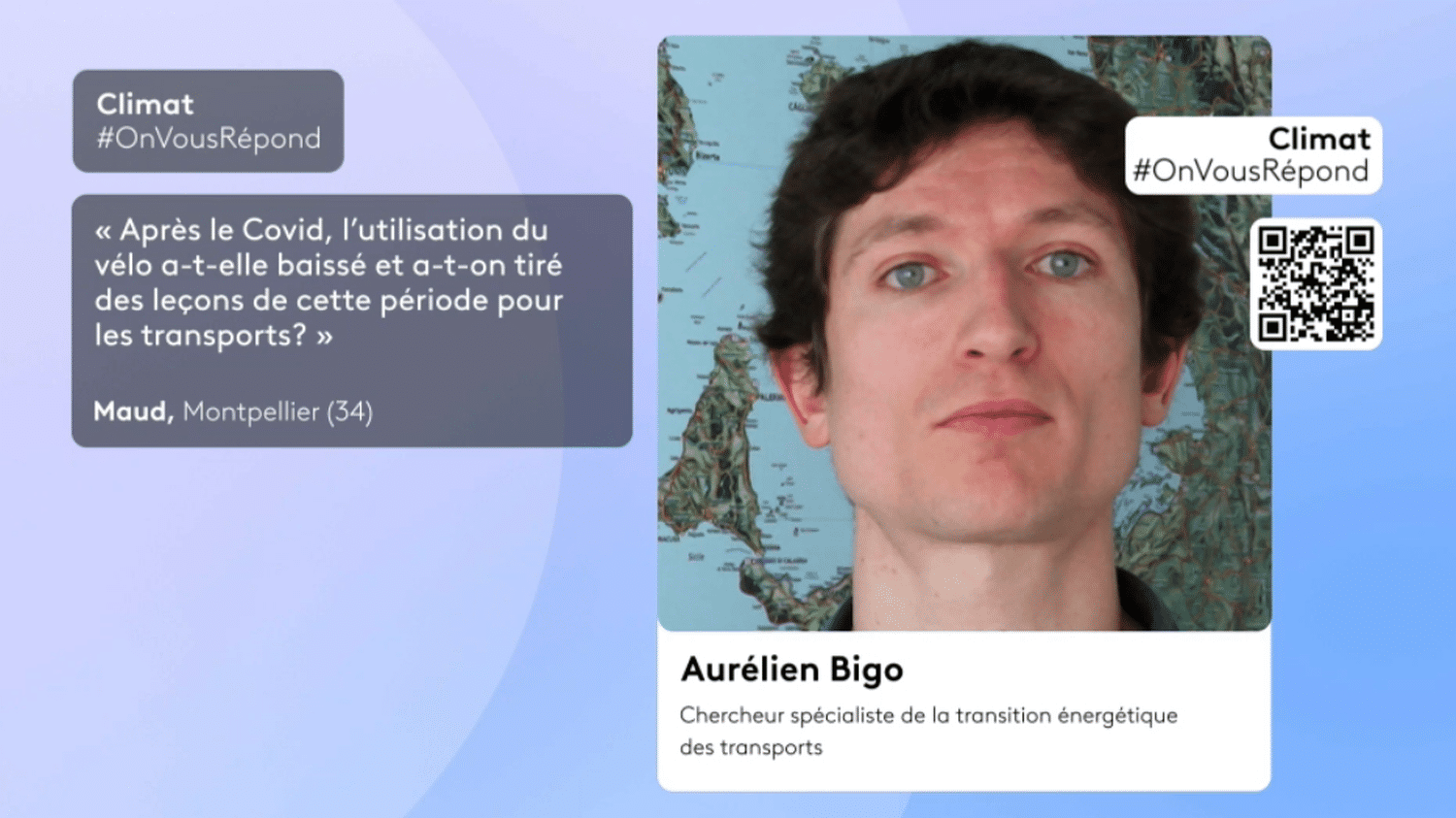
Published
Updated
Reading time: 2min – Video: 1min
1min
Since the Covid crisis, many French people have bicycle, and the cycle paths have multiplied in certain cities. Where are we now? Aurélien Bigo, a researcher specializing in the energy transition of transport, answers you.
Compared to the situation before the covid, the bicycle seems to have entered a new era in France: the developments are multiplying, whether in Île-de-Francein intramural Paris or in Lyon. But also in rural departments like the Drômewhich are often the big forgotten, the important mileage of roads to be equipped being prohibitive in terms of cost for local communities.
Between 2019 and 2023, we have an increase of 37 % of cycling.
Aurélien Bigo, transport specialist
In territories like LimousinFrance 3 noted that more and more cyclists are participating in the evaluation barometers of cities in terms of bicycle accessibility, a sign of an increasing involvement of the French.
Aurélien Bigo, a researcher specializing in transport, confirms this: “Between 2019, the year just before the COVVI, and 2023, we have an increase of 37 % of cycling. We had support policies at that time which favored the bicycle, and which made the practice increased. »»
But since then? The practice seems to have reached a level: “There is rather stability in recent months and recent years,” said the researcher. Some cyclists also complain about a still too large danger of traffic conditions: The most dangerous crossroads in Paris were thus listed by pro-Vero associations.
Some figures also seem to show that new bicycle sales mark the plunge. But it may be because the French are now buying more used cyclesand repair theirs when it is broken rather than changing it.
According to Aurélien Bigo, you must in any case continue to develop the bike. Because growth prospects are there: “Including in rural communities, there are 40 % of journeys which are less than 5 km, therefore which are accessible by bike. »»
Let us recall that the practice of daily cycling has the advantages: inexpensive, it hardly pollutes, reduces our dependence on petroleum countries, creates jobs of repairers in France, takes up less and makes less noise that the car. She also helps us to fight against sedentary lifestylesource of many diseases …
To ask yourself your question too, It's here
/2025/05/21/39-682dafdec0d91181190182.png)
